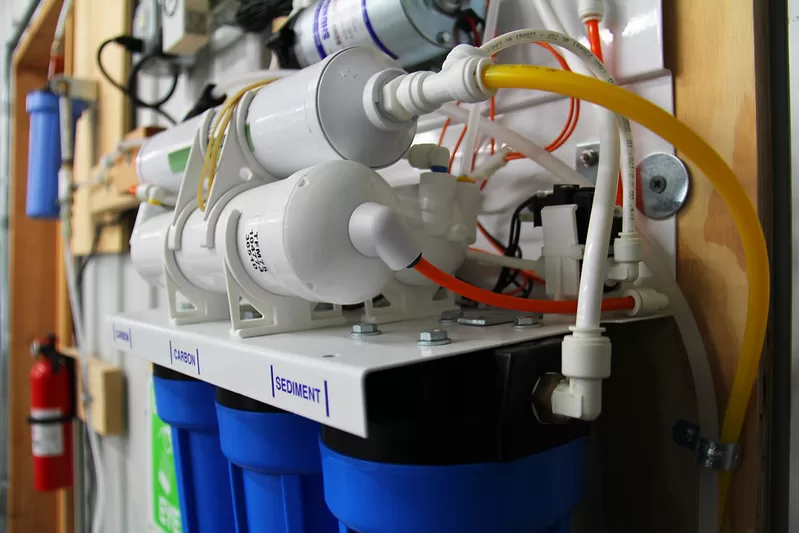Whilst the concept of osmosis has been understood for centuries, reverse osmosis (RO) only really emerged as a viable filtration technique around the mid-20th century.

Technological advancements have helped it to evolve into a highly effective and widely used method for water filtration. Read on to find out more about the benefits of reverse osmosis.
Undoubtedly, the biggest benefit of the reverse osmosis process is that it can remove an extensive range of contaminants, including bacteria, viruses, and chemicals. The semi-permeable membrane sieves out impurities in a highly efficient manner, resulting in exceptionally pure water.
This high level of purity not only enhances the taste and clarity of the water but ensures its safety, making it an ideal choice for various applications.
Read Also:
Reverse osmosis filtration helps to safeguard health and well-being. This is because it so effectively eliminates harmful contaminants, including lead, chlorine, arsenic, and fluoride.
By opting for a reverse osmosis system, you can gain peace of mind knowing that the water you use and consume has been meticulously purified, free from hazardous substances that could impact health. Choosing a reverse osmosis system ensures a higher level of safety for your household.
Reverse osmosis filtration results in significantly less water wastage than other water purification methods. This is because its efficiency in removing contaminants ensures that a higher percentage of impurities are captured, with most of the water being purified.
Although some water is still discarded as wastewater in the process, this is minimal. In a world where sustainability is of critical importance, adopting reverse osmosis filtration is highly recommended.
Reverse osmosis is a highly versatile filtration method. Extending beyond residential use where it is commonly used for providing clean drinking water, it is employed across various industries ranging from healthcare and agriculture to food and beverage.
Reverse osmosis systems are most commonly seen in settings where stringent water quality standards are vital. As well as meeting stringent regulatory requirements, it also ensures that high product quality is maintained.
Reverse osmosis is generally considered to be a cost-effective filtration method. Although the cost of the initial installation may seem high due to the equipment needed, it can still prove to be a good investment if high water quality is crucial.
Not only is water quality better, but a reduced reliance on bottled water and minimal maintenance requirements can also make it an economically sound choice in the long run. Purchasing purified water or dealing with the consequences of poor water quality can be costly for businesses, making a reverse osmosis system well worth considering.
To find out more about our reverse osmosis systems or to discuss your filtration requirements, get in touch today. Call us on 01206 866 444 or email us at sales@lubron.co.uk.